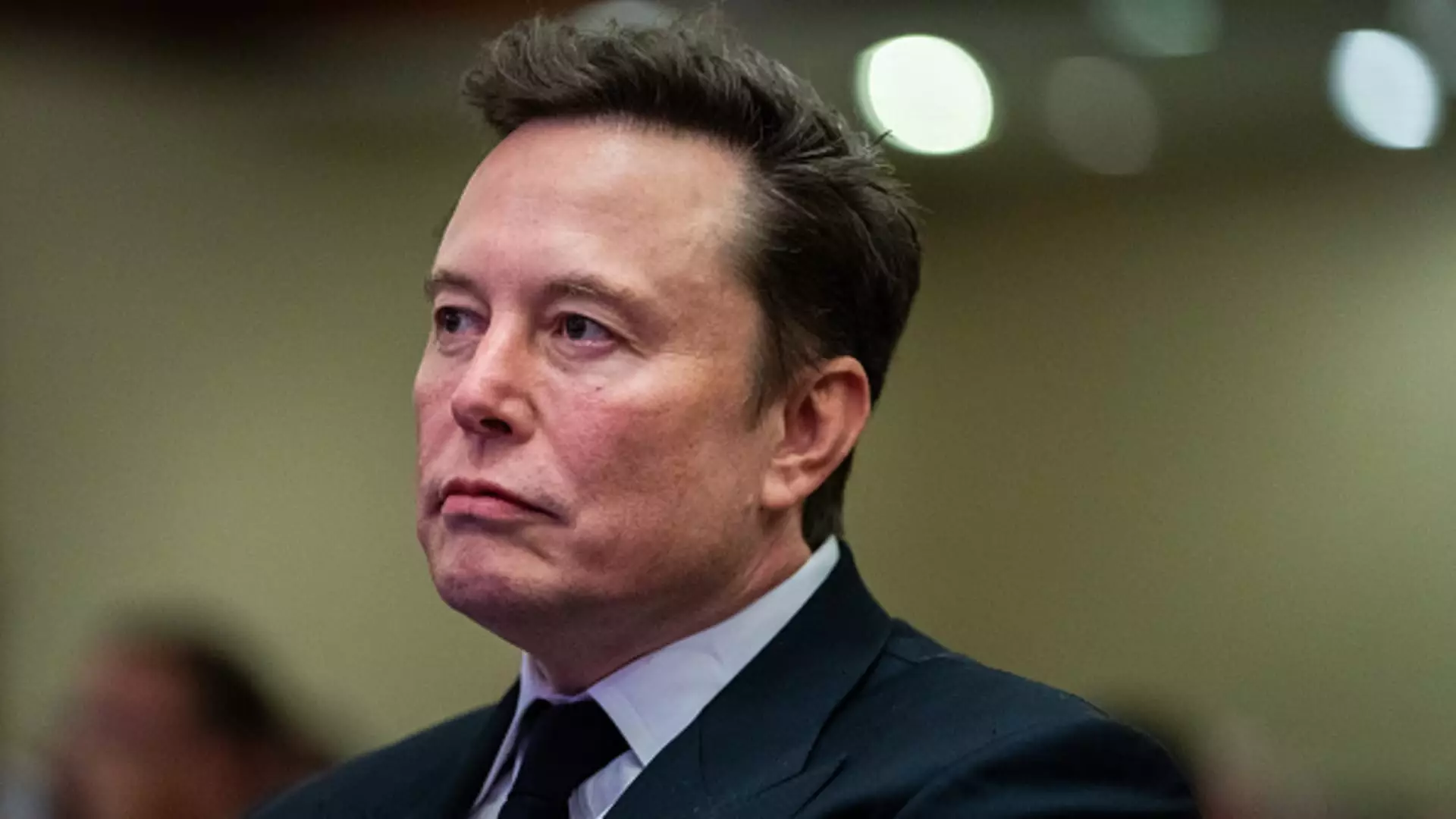The intersection of technology, politics, and free speech has never been more convoluted than in today’s digital landscape, particularly following Elon Musk’s acquisition of the social media platform, X (formerly Twitter). Accusations of censorship have surged among conservative circles, specifically targeting Musk after he seemingly revoked access to key premium features for several right-wing accounts. This article delves into the unfolding drama, exploring the implications of such actions and the looming questions surrounding the notion of free expression within Musk’s jurisdiction.
The catalyst for recent controversies stemmed from at least 14 conservative users who reported losing their blue verification badges, a status intrinsically linked to various premium features, including monetization capabilities. These users, who had previously criticized Musk’s immigration ideologies, expressed their grievances on the platform, asserting a perceived act of retaliation against dissenting opinions. The removal of verification struck them not merely as a technical adjustment but as a calculated maneuver engineered to silence opposing voices.
Musk’s recent communications on X attempted to address the situation. He asserted that the platform’s algorithm consciously reduces the visibility of accounts that receive frequent blocks or mutes from verified users. While intended as a reminder, his explanation did little to quell the rising tide of outrage. Many users interpreted the message as an admission of a stifling mechanism reminiscent of ‘shadow banning,’ a term that encapsulates the covert suppression of online discourse without explicit acknowledgment.
This situation poses fundamental questions about the principles guiding platforms like X and the perceived impartiality of their algorithms. If an individual’s reach is indeed curtailed based on subjective user interactions, it raises alarming concerns about the freedom of expression that Musk himself vowed to uphold upon acquiring the platform. For a figure who has positioned himself as a champion of free speech, these actions can breed skepticism regarding his true intentions.
The timing of these developments coincides with heightened political tensions over immigration policy, especially amid discussions around Donald Trump’s potential presidency. Musk, often criticized for his complicated stance on immigration—balancing between being an immigrant entrepreneur and accommodating right-wing ideologies—finds himself ensnared in a web of political allegiance and digital censorship claims.
Influencers and account owners closely aligned with conservative media outlets, such as ConservativeOG, have branded Musk’s actions as a strategic political maneuver, effectively labeling them a “political takedown.” Preston Parra, the head of ConservativeOG, issued an urgent call to action, vowing to defend his beliefs and continue advocating for strict immigration policies, even amidst digital adversity. This narrative not only encapsulates the fierce loyalty within specified ideological circles but sheds light on how perceived slights can engender mobilization against influential tech figures.
As figures like Musk navigate the intricacies of managing a social media platform that serves diverse ideological perspectives, the inherent challenges multiply. The events surrounding the conservative accounts reflect a broader contextual clash between the burgeoning influence of technology and traditional political establishments. The expectation that social media should function as a bastion for free expression remains paradoxically at odds with the reality of platform governance, where a handful of gatekeepers wield significant power over discourse and visibility.
Amid the criticisms directed at Musk, it’s essential to observe the long-standing tensions that run between conservative voices and perceived liberal biases in the tech industry. Many right-wing users view Musk as emblematic of an establishment that, despite its claims otherwise, continues to exhibit tendencies toward censorship. The amalgamation of personal ideology with corporate governance could signal deeper fractures not only within social media platforms but within the larger socio-political fabric.
Ultimately, as Elon Musk pursues his vision for X, the repercussions of his decisions extend far beyond algorithms and social media features. They encapsulate a narrative that speaks to the evolving relationship between individuals, technology, and freedom of expression in an increasingly polarized society. The current dilemma poses a crucial query that begs ongoing reflection: can a tech giant genuinely serve as a conduit for free speech while simultaneously managing a platform rife with ideological disparities? The answers to these questions will profoundly impact both Musk’s legacy and the broader digital public square.



Leave a Reply